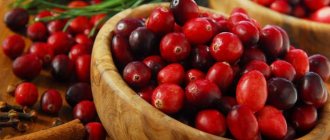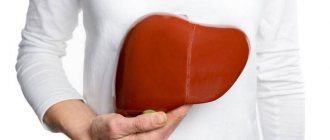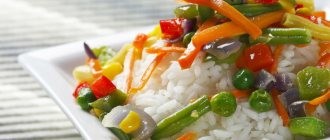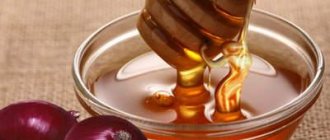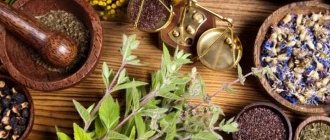Characteristics of the syndrome
In its classic form, irritable bowel syndrome is manifested by disruptions in the functioning of the large intestine. It is characterized by stool disorders: frequent diarrhea or, conversely, prolonged constipation, alternating this and that (2).
Depending on the severity of constipation or diarrhea, the type of IBS and its course are determined. There are three important points to note:
- Any type of irritable bowel syndrome can significantly impair a person's quality of life, including disability (3).
- There were no risks of increased mortality of patients associated with the pathology (4).
- IBS does not increase the likelihood of developing colon cancer (5).
Since manifestations can range from diarrhea to constipation, the treatment plan must take into account the type of illness. Therefore, before you begin treating irritable bowel syndrome at home, it is worth getting a digestive system diagnosis. This is necessary to confirm the diagnosis and establish the variant of pathology.
Effective recipes
How to treat the intestines with increased sensitivity of the mucous membranes of the organ? In the arsenal of traditional medicine, there are many different ways to get rid of unpleasant symptoms associated with IBS. Regardless of the root causes of the pathology, the following well-known recipes are used as treatment.
Article on the topic: Recipes and nutritional rules, without which gastritis cannot be cured
Dill or fennel seeds
An ancient recipe, which is used to eliminate increased gas formation and flatulence, normalizes stool. The safety and effectiveness of the product has also been confirmed in pediatric practice. To prepare the decoction, pour 2 tbsp. spoons of dill or fennel seeds 500 ml of boiling water, simmer over low heat for about 10 minutes and leave until it cools naturally.
The decoction is filtered through a double-folded bandage and drunk 100 ml several times a day after meals. Usually on the 3rd day the symptoms disappear, and lightness is felt in the epigastric area.
Chamomile treatment
Pharmaceutical chamomile is a simple and affordable plant in the fight against attacks of irritable mucous membranes of the intestines and stomach. Tea based on chamomile decoction perfectly relieves spasms, improves intestinal motility, and helps relieve nausea and vomiting. Pharmacy chains sell a convenient form of release of medicinal herbs - filter bags for one-time use.
To prepare tea, pour boiling water over the bag, steep and drink throughout the day. The total duration of the course is 2-4 weeks. To improve the taste, you can add honey to tea or eat it as a bite.
Linden decoction
Linden flowers are included in many medicinal herbs aimed at eliminating unpleasant symptoms of the digestive system. In addition, linden increases local immunity, accelerates recovery, and stimulates the body's resistance to many pathogenic microorganisms. To eliminate spasms, pain and constipation, vitamin tea based on linden can help.
For cooking you will need 2 tbsp. spoons of dried orange peels, 1 teaspoon of ground cinnamon, 1 liter of water, 2 tbsp. spoons of linden flowers. Place the mixture over low heat and bring to a boil. Then infuse and filter thoroughly. Drink warm or hot instead of tea several times a day.
Important! To enhance effectiveness, you can add a little honey. This decoction is also a kind of aromatherapy.
Gut Health Blend
To improve digestive processes, you can use the following effective recipe: in the morning, drink 300 ml of warm water with aloe juice, honey and 5-6 drops of lemon juice on an empty stomach. This infusion can improve intestinal motility, reduce increased gas formation, and eliminate heartburn and flatulence.
Apple therapy
Apples are known for their abundance of fiber and vitamins. 1 apple per day is enough to normalize the entire digestive process and stabilize stool. You can drink apple juice, mix it with carrot juice, add cream.
Apples can also be eaten baked with honey or maple syrup. Regular consumption of fresh apples will strengthen local immunity and reduce the risk of exacerbations of IBS.
Article on the topic: Which belladonna candles are better to choose?
Herbal mixture of chamomile and buckthorn
A collection of chamomile and buckthorn effectively relieves symptoms of constipation and defecation disorders. To prepare, you will need to mix buckthorn bark, chamomile, valerian root, 1 tbsp dill seeds. spoon and pour 1 liter of warm water. The composition is placed on low heat for 30 minutes, after which it is infused and filtered through cheesecloth. The resulting decoction is drunk 300 ml 2-3 times a day. At the same time, the first dose must be on an empty stomach. The total duration of treatment is 7-10 days.
Calming preparation for IBS against the background of a stress factor
For preparation you will need chamomile, caraway and fennel fruits, valerian root, peppermint leaves, cornflower. All ingredients are mixed in equal proportions, take 2 tbsp. spoons and pour 0.5 liters of boiling water. The composition is adjusted in a steam bath for 20 minutes, then cooled and thoroughly filtered.
Drink 200 ml 2-3 times a day. The general course is 14 days, after which they take a short break. Between doses of the decoction, you can drink a tincture based on valerian, peony, motherwort (10-15 drops per 100 ml of water). At the same time, you should control your own emotions and reduce the stress factor.
Collection of linden and calendula
The collection is effective against severe manifestations of irritable bowel syndrome, especially with pain in the gastrointestinal tract, fecal retention, flatulence and dyspeptic disorders. To prepare, you need to mix equal parts of calendula, linden flowers, peppermint, birch leaves, sage and blue cornflower. 2 tbsp. spoons of the mixture are poured into 1 liter of boiling water, heated in a steam bath for about 40 minutes, then infused, cooled and filtered.
The resulting decoction should be drunk warm, after adding lemon juice or honey. The total duration of therapy is 14-21 days, depending on the severity of unpleasant symptoms.
Herbal treatment is a safe and effective method of eliminating any manifestations of dyspepsia within a few days. Additionally, you should include more fiber and fermented milk products in your diet.
If you suspect the development of intestinal dysbiosis, probiotic complexes should be included in treatment with folk remedies.
Causes of Irritable Bowel Syndrome
There is no direct, single cause of chronic diarrhea or constipation. It is believed that this is how our body reacts to a particular stimulus, external or internal factor. The mechanisms of such a reaction, however, also need clarification (6).
The gut becomes irritated in response to chronic anxiety and stress, certain types of foods, chronic inflammation (not necessarily in the digestive system), and disturbances in gut bacterial flora. A certain role is assigned to genetic heredity.
However, in most cases it is the emotional state that is to blame. Have you all heard the expression “all diseases come from nerves”? This is 100% suitable for irritable bowel syndrome. It is the nervous system that regulates the functioning of the intestines, which is why it becomes “irritated” in response to nervous tension, stress, anxiety and irritability. I wrote about this in more detail in my book “Goodbye, Diseases.”
Having discovered a factor that provokes IBS, you can and should eliminate it from your life. This can be done at home; a hospital visit may be required only for diagnosis or when the pathology is accompanied by serious complications:
- severe abdominal pain;
- severe weight loss, exhaustion;
- anemia (anemia);
- uncontrollable diarrhea (6).
You should not start self-treatment of IBS without consulting a specialist (7). Because under the mask of this syndrome serious illnesses can be hidden.
Next, we will look at the main 8 Ways to treat irritable bowel syndrome at home.
How to treat irritable bowel syndrome with folk remedies
Irritable bowel syndrome (IBS) is an inorganic lesion of the colon itself (for example, with colitis - this will be an inflammatory process) and is a functional disorder. Therefore, this is not an ulcer or even polyps, but a violation of only the motor function of the intestine itself.
Symptoms of irritable bowel.
All patient complaints are similar to symptoms of flatulence, as well as bloating. The pain that occurs is always different, it can be aching, in others it is stabbing, in others it is a nagging pain. There may be diarrhea, or there may be constipation; in any case, you cannot avoid discomfort. However, the majority experience a feeling of satiety and nausea quite quickly.
There is also pain in the chest area, especially the left side. Most complained of pain in the muscles, especially in the joints, headaches, frequent urination, and a feeling of pain when falling asleep only on the left side. There is also an interruption in the beating of your heart. But do not rush to assign this diagnosis to yourself; let the doctor do it.
How to treat irritable bowel with folk remedies.
Peppermint. Using 1 teaspoon of this raw material, you need to brew it in a mug with boiling water and wait 15 minutes. Take 1 glass twice a day. Mint itself can relieve spasms of all muscles located on the intestinal wall. The recipe is also effective for flatulence (bloating).
Recommendation!!! Not for children under 5 years old, with hypotension, with varicose veins, with low acidity in the stomach itself, if liver function is impaired, not with insomnia, with inflammation in the gall bladder.
Dill. Garden dill ensures good digestion and relieves cramps. You need to brew the herb or its seeds, 1 tbsp. l in 2 glasses of clean boiling water and leave for 2 hours. Drink three times a day, each time ½ part of a simple glass.
Recommendation!!! Its seeds and even the herb itself can lower blood pressure, so it is better to avoid it in case of hypotension, when vision deteriorates, if you feel an ongoing decline in general strength, for anyone who experiences sudden fainting and a personal allergic adverse reaction.
Caraway. Its beneficial fruits perfectly neutralize the onset of fermentation or decay and have a beneficial tonic effect on the intestines itself. Therefore, it is recommended to eat 3 grams of medicinal cumin fruits (powder), 4 times a day. You should drink it with plain boiled water, preferably warm.
Recommendation!!! The composition contains some stimulating hormones, so it is better to avoid if you are pregnant. If side or adverse effects occur, it is better to refuse completely.
The most powerful recipe. Mix just 1 part of the rhizomes (roots) of medicinal valerian, 3 parts of medicinal motherwort and cudweed and exactly 4 parts of heather. Pour 2 tbsp. l of this collection and brew in 500 ml of boiling water. The tincture should infuse for 12 hours. Regardless of your food, take 4 times a day, always 2 tbsp. spoons The recipe evens out the psycho-emotional state.
CONCLUSION: All problems with the intestines, namely the definition of the disease, proper treatment and control, are best done under the proper supervision of a competent and trusted doctor. If anyone knows other wonderful recipes for intestinal diseases, please post them immediately in our comments. If you want, then, if possible and at your request, the administration will place them on the site. Share this article with other users. Just click on your social network (see icons below).
GET HEALTHY AND NEVER BE SICK AGAIN!!!
Sincerely, Administration of your Site!!!
Method 1. Work with the psyche
One of the main causes of irritable bowel syndrome is disturbances in the functioning of the nervous system - stress, anxiety and restlessness, nervousness and irritability.
There are many patients who are directly aware of the “psychogenicity” of their illness. For this category of patients, relief can come through targeted psychotherapeutic assistance and auto-training (8).
The method is also relevant for those whose syndrome is accompanied by severe pain. More than 50% of people with psychological problems experience pain, according to the CDC (9). In this case, a vicious circle arises: stress-pain-stress and so on. Yoga and oriental gymnastic practices will help break the vicious chain.
Good results are demonstrated by cognitive behavioral therapy, dynamic and multicomponent psychotherapy. Sometimes antidepressants are helpful (more on them below).
It may be helpful to work with a hypnotherapist. A 2012 study conducted in Sweden and published in the American Journal of Gastroenterology found pain relief and improved quality of life through hypnotherapy sessions (10).
The main message is to imagine your intestines as a blocked stream and unblock it. Mentally allow its contents to move freely. However, other options for this method of cognitive behavioral therapy are possible.
Hypnosis sessions, regular relaxation exercises and auto-training have been shown to be helpful for IBS (11). At the beginning of the 21st century, a study was conducted in Australia, the results of which were unexpected. Gut-focused behavioral therapy is as effective as the FODMAP diet (next section) (12).
The first results are felt after 10 sessions, conducted once a week.
List of medications for irritable bowel syndrome
- Duspatalin, dicetel, papaverine, spasmomen, no-spa - belong to the group of antispasmodics, reduce intestinal spasms and eliminate pain associated with them. Contraindications for use are eye diseases (glaucoma), cardiovascular disorders (hypertension) and prostate adenoma.
- Prokinetics (coordinax, motilium) help normalize peristalsis, improve intestinal motility and prevent constipation.
- Other laxatives - mucofalk and duphalac - also help normalize stool, while restoring normal intestinal microflora, like prebiotic drugs.
- Loperamide, smecta are antidiarrheal drugs that can eliminate such an unpleasant symptom as diarrhea. For the same purposes, you can use herbal remedies - berry decoctions of blueberries, bird cherry, as well as mint, chamomile, bloodroot, and serpentine.
- Espumisan and other defoamers based on simethicone and dimethicone can eliminate another manifestation of irritable bowel syndrome - flatulence.
Method 2: Practice FODMAPs
Under this abbreviation in the English version is the following: Fermentable Oligo-, Di-, and Monosaccharides, And Polyols. In the usual, Russian-language interpretation, these are Fermentable Oligosaccharides, Disaccharides, Monosaccharides and Polyols. That is, carbohydrates with a short molecule.
There are many people who have no or few enzymes in their bodies that should break down such sugars. As a result, absorption does not occur in the intestines and products begin to ferment. A person feels this condition as irritable bowel syndrome with a predominance of diarrhea and increased gas formation. For these patients, the UK's National Institutes of Health (NIH) reports the benefits of the FODMAP diet (13).
Secondarily, in addition to the fermentation of undigested carbohydrates, an increase in the osmolarity of the intestinal contents leads to IBS. Simply put, water from the body begins to be pumped into the intestinal lumen. The consequences are obvious: diarrhea, frequent loose stools. The FODMAP diet also appears to be effective for these conditions (14).
Nutritionists recommend starting with a complete rejection of foods containing short-molecule carbohydrates:
- wheat;
- rye;
- garlic;
- onion;
- most legumes (such as black beans and peas);
- fructose (honey and a lot of fruits);
- lactose (milk of animal origin).
Instead, meat, poultry, fish, eggs and nuts, bananas, and berries are introduced. Gluten-free cereals such as oatmeal are also allowed.
Then, if within 6 weeks there is a decrease or regression in the manifestations of irritable bowel syndrome, you can try to gradually return FODMAP foods to the menu.
This is worth doing, since long-term exclusion of “short” carbohydrates from the menu has been proven to disrupt the normal intestinal microflora (15). And therefore you should not give up these products forever.
In general, with irritable bowel syndrome, special attention should be paid to proper nutrition.
The best remedy for irritable bowel syndrome
There is an effective folk remedy that allows you to cope with irritable bowel syndrome using garlic. According to this recipe, to prevent cramps, indigestion due to insufficient secretion of digestive enzymes, excessive gas formation and intestinal pain, it is enough to eat a clove of garlic an hour before meals. At the same time, you need to eat it whole, washing it down with plenty of water. Unlike other folk recipes using garlic, here you do not risk being fragrant with garlic aromas all day long - a clove swallowed whole does not leave an unpleasant odor.
This remedy allows you to cope not only with irritable bowel syndrome, but also helps with gastritis and gastric ulcers, the wound-healing properties of garlic help restore damaged intestinal mucosa, and its antiseptic effect prevents the development of pathogenic microflora.
Method 3. Normalize your sleep
Practice shows that simply sleeping 7-8 hours a day is not enough. It is also important to adhere to the human circadian rhythm. A study from the University of Michigan found that nurses with rotating shifts were more likely to report IBS symptoms (16).
Frequent travelers may also encounter a similar problem. Those who have to cross time zones, disrupting their body rhythms, can help themselves by taking extra melatonin in the form of a bedtime supplement (17, 18).
In particular, the positive effect of a 3 mg melatonin supplement at night has been proven to reduce pain and improve the quality of sleep and life of patients with irritable bowel syndrome (19).
If you often experience insomnia and other sleep problems, I recommend reading this article.
Melissa (Lemon Balm) for Irritable Bowel Syndrome
To relieve cramps, pain and flatulence that accompany irritable bowel syndrome, you can use a folk recipe based on lemon balm or lemon balm. To prepare a medicinal decoction, pour 4 tablespoons of plant material with hot water (1 glass) and boil for 15-20 minutes in a water bath. Drink a tablespoon three times a day before meals.
The effectiveness of medicinal products based on lemon balm is explained by the presence of a large amount of essential oils in its leaves. Melissa essential oil contains citral, citronellal, vitamins, tannins and bitterness, geraniol, bioflavonoids, resins and organic acids, and has a sharp lemon aroma, which is why the plant received its second name - lemon balm.
Melissa has a calming effect, relaxes the intestinal walls and facilitates gas release. Preparations based on lemon balm have choleretic effects, normalize digestive function, and also have a mild hypnotic effect.
You need to take mint in the indicated dosage - when used in large quantities, its effectiveness does not increase.
Method 4. Do physical exercise
One of the earliest evidence of the benefits of physical activity for patients with IBS was a 2011 study (20). Regular strength and endurance exercises were accompanied by improved well-being in patients. Moreover, physical activity was recommended by the study authors as a primary treatment modality.
Another study conducted in Sweden in 2015 confirmed the connection between physical activity and irritable bowel syndrome. Increasing the level of aerobic exercise helps reduce the symptoms of IBS. And, at a minimum, it stops the progression of negative phenomena (21). In parallel, positive changes are noted in relation to depression and anxiety.
The result can be felt within a month, providing yourself with 3-5 hours of physical activity per week: walking, running, aerobics, cycling, etc.
Treatment of irritable bowel syndrome with dill seeds
Dill water
Dill water is used in pediatrics to normalize intestinal motility in infants and relieve spasms; it is an effective remedy for the treatment of flatulence and irritable bowel syndrome in children and adults.
Even newborn children can take dill water for bloating and flatulence. To prepare it, dill seeds are poured with boiling water in the ratio of a liter of water per tablespoon of seeds and left in a thermos for at least an hour. After the allotted time, filter the infusion through gauze and take a teaspoon three times a day before meals (for children) and 100-200 ml for adults.
Dill water should be stored in a dark place at a low temperature, and warmed to room temperature before use. In addition to its carminative effect, this remedy stimulates the production of digestive enzymes, relieves spasms of the stomach and intestines, improves the flow of bile and prevents indigestion.
Carrot seeds
Carrot seeds, as well as dill seeds, have carminative properties, help with flatulence and prevent intestinal disorders. For preventive purposes, it is recommended to take carrot seeds three times a day, in the amount of one teaspoon.
At the first signs of flatulence, take carrot seed powder - to do this, they are first dried for five minutes in the oven and ground in a coffee grinder. Single dosage – 1 teaspoon.
Fresh dill
Fresh dill is also used to treat flatulence and abdominal discomfort due to irritable bowel syndrome - it is useful to add it to food or simply eat a sprig of fresh dill after each meal. Dill is rich in beneficial substances and microelements, has a choleretic and diuretic effect, relieves spasms of the stomach and intestines, relieves discomfort and pain caused by irritable bowel syndrome.
You can prepare an infusion from dill greens, as well as from seeds - pour a tablespoon of chopped branches with 0.5 liters of boiling water and leave for an hour. Take 100 ml at a time before meals. This remedy relaxes smooth muscle muscles, normalizes the activity of digestive enzymes and prevents indigestion.
Read more: Useful properties and recipes for using dill
Method 5: Neutralize histamine
A small study conducted in Belgium and published in 2016 suggests benefits from taking the antihistamine ebastine. A group of sick people who took the drug for 3 months felt better than those who received a placebo (22).
Considering that this drug may not be available in the patient’s area of residence, it makes sense to discuss with the doctor the possibility of taking another drug with an antihistamine effect (Claritin) at home. Or replace it with herbal preparations with antiallergic effectiveness. Please note that any treatment must be agreed with your doctor.
How to cure irritable bowel syndrome with herbal remedies
Irritable bowel syndrome (IBS) is a long-term condition in which the patient complains of abdominal pain, indigestion, and flatulence. It occurs as a result of poor nutrition, neuropsychiatric disorders, inactive lifestyle and other factors. Using traditional treatment for irritable bowel syndrome, you can cope with discomfort in the initial stages.
Method 6: Use plants
Peppermint oil acts as a natural antispasmodic. By relieving spasm of the smooth muscles of the large intestine, it relieves pain. Due to this, it breaks the vicious cascade of increasing symptoms of the syndrome described above.
This is confirmed by the publication of the results of a large-scale study conducted in 2014. The data are published in the Journal of Clinical Gastroenterology and are considered reliable (23).
However, you need to take into account a couple of points:
- the effect is short-term, the spasm is relieved for several hours;
- You need to apply the oil 2-3 times a day;
- To prevent heartburn and people with high acidity, choose a peppermint oil supplement in enteric-coated capsules.
The antispasmodic effect is seen in the fact that mint oil has the property of briefly blocking calcium channels in intestinal muscle cells (24).
In addition to mint, among folk remedies the following demonstrate certain effectiveness:
- Aloe vera has a laxative and anti-inflammatory effect. The recommended dose is 1-2 tablespoons of plant juice, up to 1/3 cup (50-60 ml) per day.
- Turmeric or yellow ginger. A spice used in cooking. It has an antispasmodic effect, while activating intestinal motility. The approximate dose is about 2 grams per day.
Just keep in mind that if after the first dose a person feels worse, this method should be abandoned. And try another Method. Ideally, consult a doctor about this.
Folk recipes
Chamomile tea is very beneficial for the digestive tract.
Traditional recipes are often symptomatic in nature, so in order to comprehensively combat the problem they must be combined and combined.
Read: Irritable bowel syndrome: treatment without surgery
Below are ways to get rid of specific occurrences of IBS. For bloating and gas formation in irritable bowel syndrome.
Dill. An old folk recipe, which is still used by many mothers to treat colic in newborns. The recipe is to prepare an infusion of dill seeds.
- Dill seeds – 35 g;
- Hot water – 600-700 ml.
The infusion is very simple - pour the seeds with hot water and infuse for several hours. Afterwards, you need to strain the infusion through cheesecloth to get rid of any remaining seeds. Take 2-3 times a day, after meals.
Chamomile. One of the simplest, but most accessible and effective recipes is chamomile tea. It can be bought ready-made without additives or made from chamomile, which is sold packaged in special filter bags. You can also buy loose chamomile, but this will cause additional trouble when straining.
- Chamomile in bags;
- The water is boiled, but not too hot.
The tea is brewed as usual, only the bag needs to be kept in the cup for 5-8 minutes. This tea can be drunk in a course of 2-4 weeks. Daily 1-2 times a day.
Linden. You can make vitamin tea from linden flowers, which can also be used for colds and to boost immunity.
- Linden flowers - 3 tsp;
- Honey – 3 tsp;
- Orange peels – 2 tsp;
- Cinnamon – 0.5 tsp;
- Water – 1.5 l.
It is necessary to pour almost boiling water over dry orange peels and linden flowers, seal hermetically and leave for 1 hour. Afterwards, you need to heat the infusion in a water bath almost to a boil and add the remaining ingredients. If desired, you can immediately strain the infusion from the flowers and peels, or you can leave them in the jar.
This infusion should be taken warm or hot, no more than once a day.
Method 7. Use dietary fiber
Supplementing with dietary fiber is beneficial for any type of irritable bowel syndrome. With constipation, the fibers swell and increase peristalsis, activating the movement of feces. In case of predominance of diarrhea, diarrhea, they increase the volume and increase the viscosity of the stool.
Don't eat a lot of high-fiber foods right away (25). Start with small doses (otherwise there is a risk of increased gas formation and pain) and gradually increase the amount of dietary fiber to 25 g per day.
Insoluble dietary fiber, on the contrary, can negatively affect the health of patients with IBS. Therefore, they should be abandoned (26).
Description of the syndrome
Irritable bowel syndrome is a disease of one of the key parts of the human digestive system, which is characterized by extensive or local inflammatory processes in the tissues and mucous membrane of the colon.
It is caused by pathogenic microorganisms, or is a consequence of the negative influence of environmental factors.
As a result of intestinal irritation, its functionality is automatically reduced. According to medical statistics, IBS occurs at least once in every 3rd inhabitant of the globe.
The disease is not fatal, but it significantly reduces the quality of life of the sick person, the normal absorption of food is disrupted, metabolic processes and the saturation of the body with nutrients deteriorate.
Method 8. Choose antidepressants
It is difficult to classify this method as a traditional method of treating irritable bowel syndrome. However, it does not require regular hospital visits and can be done at home. Plus, if any of the above methods are beneficial, IBS treatment will be carried out without the use of drugs.
Small doses of antidepressants, less than those required for their specific action on the brain, help with irritable bowel syndrome (27). A doctor must prescribe medications, but they can also be taken at home.
There are observations that drugs from the group of tricyclic antidepressants are effective in the form of IBS with diarrhea. Drugs in this category suppress the activity of the intestinal nerve plexuses. As a result, the pain decreases, the number and strength of the urge “by and large” decreases.
When constipation is prevalent, medications from the selective serotonin reuptake inhibitor (SSRI) category may help. They speed up and activate the gastrointestinal tract.
Secondarily, medications relieve anxiety, thereby increasing the pain threshold. This improves the well-being and condition of patients with irritable bowel syndrome (28).
Doses needed are lower than to treat the problems for which antidepressants are designed. Select them with your doctor. Also keep in mind that the effect of taking antidepressants may only develop after 4-6 weeks of daily use.
Treatment with folk remedies
How to treat the disease at home? Therapy is selected depending on the clinical manifestations . Thus, for constipation, laxatives are required, for diarrhea - fixative prescriptions, for discomfort and pain - means that reduce gas formation.
Herbs for IBS of a psychogenic nature should have a moderate sedative effect . In folk medicine, preparations based on medicinal herbs, oils, decoctions of fruits, flowers, and roots are used.
Emergency Recipe
Exacerbation of irritable bowel syndrome can be eliminated with a decoction based on nettle, fennel seeds, dill and chamomile . 1 tbsp. A spoonful of raw materials is poured with 300 ml of boiling water, infused and drunk warm. Within half an hour the condition noticeably improves. Additionally, you can take a warm bath with essential oils of lavender, peppermint, and valerian decoction.
Medicinal smoothies
Treatment of IBS with folk remedies also involves changing the diet. For functional disorders of the intestinal tract, the following recipes are indicated :
- Beat carrot juice, several cauliflower florets, tomato and celery until smooth, add melted honey and drink an hour before meals.
- 2 peeled carrots, spinach, apple (peeled from skin and core), grind a little salt in a blender, take during the day after each meal.
- 2 bananas, ground nutmeg, yogurt are mixed using a blender, drunk as an afternoon snack instead of a full meal.
Smoothies reduce the digestive load, improve intestinal motility , and ensure timely evacuation of feces.
Linden decoction
Linden is rarely used on its own. The greatest therapeutic effect is a mixture based on linden, cornflower, sage and birch buds . All ingredients are mixed, 2 tbsp. spoons, pour 500 ml of boiling water, bring to low heat, infuse and drink 100 ml throughout the day.
Apple therapy
Apples improve peristalsis, prepare the gastrointestinal tract for food intake, normalizing digestion . They can be eaten in the form of purees, fruit salads with yogurt and honey, and combined with nuts. During an exacerbation, baked apples with honey and cinnamon help well.
Calming collection
A decoction based on peppermint, motherwort, and sage will help normalize the psycho-emotional state . Mix the ingredients, 1 tbsp. a spoonful of raw material is poured into a glass of boiling water, infused, filtered and drunk instead of regular tea throughout the day. Additionally, you can take a bath, breathe in an aroma lamp, take drops of valerian and motherwort.
Carrot Seed Recipe
Carrot seeds have a pronounced carminative effect , improve peristalsis, and normalize flatulence. Pour 2 teaspoons of seed into a glass of boiling water, leave for an hour and drink on an empty stomach or at night. Within a week you can observe a lasting therapeutic effect.
Infusion with dill seeds
Dill water eliminates increased gas formation, reduces spasms , due to which it is used in neonatology and pediatrics to relieve colic. To prepare 1 tbsp. pour 300 ml of boiling water over a spoonful of seeds and leave for several hours. The finished composition is drunk warm. To improve the taste, you can add a little honey.
Decoction with lemon balm
Melissa has a powerful antispasmodic and analgesic effect . For IBS, a combination of lemon balm and lemongrass is indicated. Plants mixed, 1 tbsp. A spoonful of the mixture is poured into 500 ml of boiling water, heated in a steam bath for about half an hour, filtered and drunk instead of tea.
Infusion with wormwood
Wormwood has a pronounced natural antibacterial, antifungal and antiparasitic effect . If IBS is caused by pathogenic microflora and parasites, wormwood will help. A handful of the plant or 2 filter bags are poured into 1 liter of boiling water, left for about 3-4 hours, and drunk 100 ml after each meal.
Cumin seeds
Cumin has a tonic effect, neutralizes the effects of fermentation and putrefaction in the intestinal tract, and helps normalize stool. To prepare, pour 1 teaspoon of cumin powder into a glass of warm water and drink immediately, regardless of meals.
Oils for rubbing
Oils are used for rubbing and massaging the peritoneum and lower abdomen . To ensure the best result, you need to mix mint, camphor, almond and geranium oil, add a little warm water (15-20 drops) and rub the stomach with soft massage movements after the bath. The duration of the massage is 15-20 minutes. Usually, after proper manipulation, bowel movement occurs.
Tea with potato starch
Potato starch relieves constipation and flatulence . To prepare 1 tbsp. A spoonful of starch is stirred in warm green tea until a homogeneous mixture is obtained, and drunk in one gulp. Each time a new mixture is prepared.
Laxative collection
For constipation, you can drink the following mixture : fennel, dill, peppermint, chamomile, buckthorn mixed in equal proportions, 1 tbsp. Pour 250 ml of boiling water over a spoonful of the mixture, leave and drink immediately after cooling. The composition is recommended to be consumed 3-4 times a day.
Bran decoction
Bran is a natural fiber; its use must be accompanied by plenty of drinking , otherwise constipation with IBS will only worsen.
To prepare 2 tbsp. spoons of bran are poured into 300 ml of milk, put on low heat and cook for 10 minutes. Leave until cool, add a little honey and drink in the morning on an empty stomach or at night.
Are other medications effective?
Let's look at whether taking other medications for IBS besides the above-mentioned antihistamines and antidepressants is effective.
For example, antispasmodics may provide some relief for this condition. However, those that are effective for irritable bowel syndrome (mebeverine, hyoscine) have a weak effect (29). In addition, they have noticeable side effects, including constipation (30).
Certain hopes were placed on antibiotics. In particular, those that are not absorbed, but act exclusively in the intestines. This is believed to prevent the development of resistance in microorganisms. In one study, the indication for use of enteric antibiotics was the type of TBS with diarrhea. However, no significant difference was observed compared with placebo (31). Therefore, taking antibiotics for irritable bowel syndrome is not recommended.
There is also no evidence that probiotics are helpful for treating IBS (32). Therefore, you should not expect that using them at home will help relieve symptoms.
Treatment of irritable bowel syndrome using traditional recipes
For a safe and effective lasting result in the treatment of IBS, herbal medicine and many are used. They have a number of advantages over drug treatment, which is sometimes impossible to use:
- A safer method if all proportions, duration of treatment and method of application are observed;
- If you are intolerant to some components of special drugs, traditional recipes remain the only way out;
- Side effects from this treatment are very rare;
- It is an inexpensive method of treatment compared to medication;
- It has not only a therapeutic effect, but also a restorative and preventive effect.
Address the cause of the problem
Every disease has its own causes. Often these are seemingly minor mistakes in nutrition, eating behavior, sleep and rest patterns. Or vitamin deficiencies. Or stress (after all, we have all heard that all diseases are “from nerves”).
To understand the causes of your problem, you need to introduce new, not at all complicated habits into your life. Some foods should be added to the diet, some should be excluded. Take the necessary vitamins. Improve the functioning of the gastrointestinal tract, because overall health depends on its functioning. And not only health and immunity, but also our mood depends on the state of the intestinal microflora. It has been proven that 95% of serotonin (the hormone of happiness) is produced by the intestines. If you want to eliminate the cause of your health problems, rather than just take temporary symptomatic measures, I recommend that you read my book, Goodbye, Diseases.
Among diseases of the gastrointestinal tract, irritable bowel syndrome is not the last in terms of prevalence and deterioration in the quality of life of those suffering from this pathology. And although there are no medications that directly treat IBS, it is possible to help people. Sometimes a diet is enough, sometimes you have to use other methods.
In the article above, we examined the basic causes and manifestations of such a disorder as irritable bowel syndrome, treatment with folk remedies in adults for this pathology. We analyzed 8 Methods of therapy at home. We also looked at what not to do and what precautions to take.
Activated charcoal for irritable bowel syndrome
Activated charcoal is traditionally used to treat poisoning because it absorbs toxins and removes them from the body during bowel movements, preventing them from entering the bloodstream. However, it can also be used to treat irritable bowel syndrome and its negative effects. Thus, coal absorbs toxins and substances that provoke the processes of fermentation and putrefaction in the intestines, during which a large amount of gases is formed. Bloating and pain in patients with irritable bowel syndrome are often associated with increased gas formation.
The dosage of activated carbon required for positive treatment results depends on the patient’s weight and is calculated from the ratio of one tablet per ten kilograms. So, if the patient weighs 70-75 kg, he needs to take 7 tablets at a time.
Drinking more activated charcoal than recommended increases the risk of constipation. However, this phenomenon is temporary, and after a few days the stool returns to normal.
Activated carbon can be replaced with smecta, which not only absorbs toxic substances and helps remove them from the body, but also helps with bloating, diluting stools, and excessive gas formation.
The dosage of smecta for adults is 1 packet per dose, the number of doses is three times a day. For children, one packet of smecta is enough, divided into several doses per day.
The course of treatment is 3-7 days, can be taken every time unpleasant symptoms and discomfort occur.


